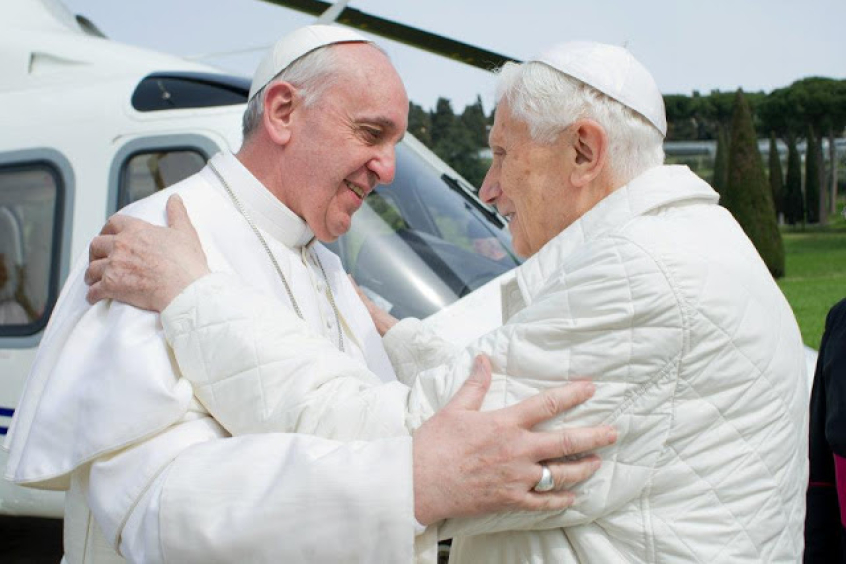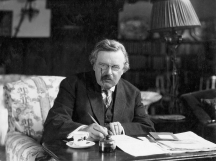
The Catholic Church is in "deep, double crisis" because of a prevailing view among Christians that anyone can be saved, whether they believe in Jesus or not, according to former Pope, Benedict XVI.
In a rare interview in German at a conference in Rome and published in Avvenire, the daily newspaper of the Italian Bishops' Conference, Pope Emeritus Benedict XVI said that since the Second Vatican Council in the 1960s, traditional faith has become inverted.
"In the second half of the last century it was fully affirmed that God cannot let all the unbaptised go to perdition," he said. This was directly contrary to the traditional view taught by the Church throughout previous centuries, and based on the words of Jesus himself.
This meant missionaries were no longer motivated to proselytise, and Christians no longer felt they had to live according to traditional doctrine to be saved.
Speaking to Jacques Servais, a Jesuit from Belgium who teaches systematic theology at the Gregorian University in Rome, Benedict also said that for a contemporary believer, the classical perspective of the Christian faith had been inverted.
The inversion had reached the point where people no longer believed they needed to justify themselves to God, but that God should justify himself to people to account for all the suffering in the world.
"He is no longer a man who believes he needs justification before God, but he believes that God is obliged to justify because of all the horrible things in the world and in the face of human misery, all of which ultimately depend on him."
And many Christians no longer uphold the view, as stated by Jesus in the New Testament, in John 14: "Noone comes to the Father except through me."
People today feel God will not let non-Christians and unbelievers be condemned. "In this sense, concern for the traditional view of salvation is mostly gone."
Benedict said: "There is no doubt that at this point we are faced with a profound evolution of dogma. The Fathers and theologians of the Middle Ages could still be of the opinion that the substance of the whole human race had become Catholic and that paganism existed only on the margins. The discovery of the New World at the beginning of the modern era has radically changed perspectives."
He said the great missionaries of the 16th century had been convinced that those who are not baptised were "forever lost".
This conviction was "finally abandoned" after Vatican II in the 1960s.
This led to a "deep, double crisis". On the one hand it removed any motivation for missionary commitment. "Why should you should try to convince the people to accept the Christian faith when they can be saved even without it?" It also led to problems for Christians and how they should live their lives. "If faith and salvation are not interdependent, even faith becomes unmotivated."
In the interview, also translated and reported by LifeSite news, he said: "On the one hand faith is a profoundly personal contact with God, that touches me in my innermost being and puts me in front of the living God in absolute immediacy so that I can talk to him, love him and enter into communion with him."
But at the same time it was "inseparably to do with the community".
He said: "Church becomes a community in the communion of the body of Christ. It must introduce the encounter with Jesus Christ and bring to His presence in the sacrament. "
















